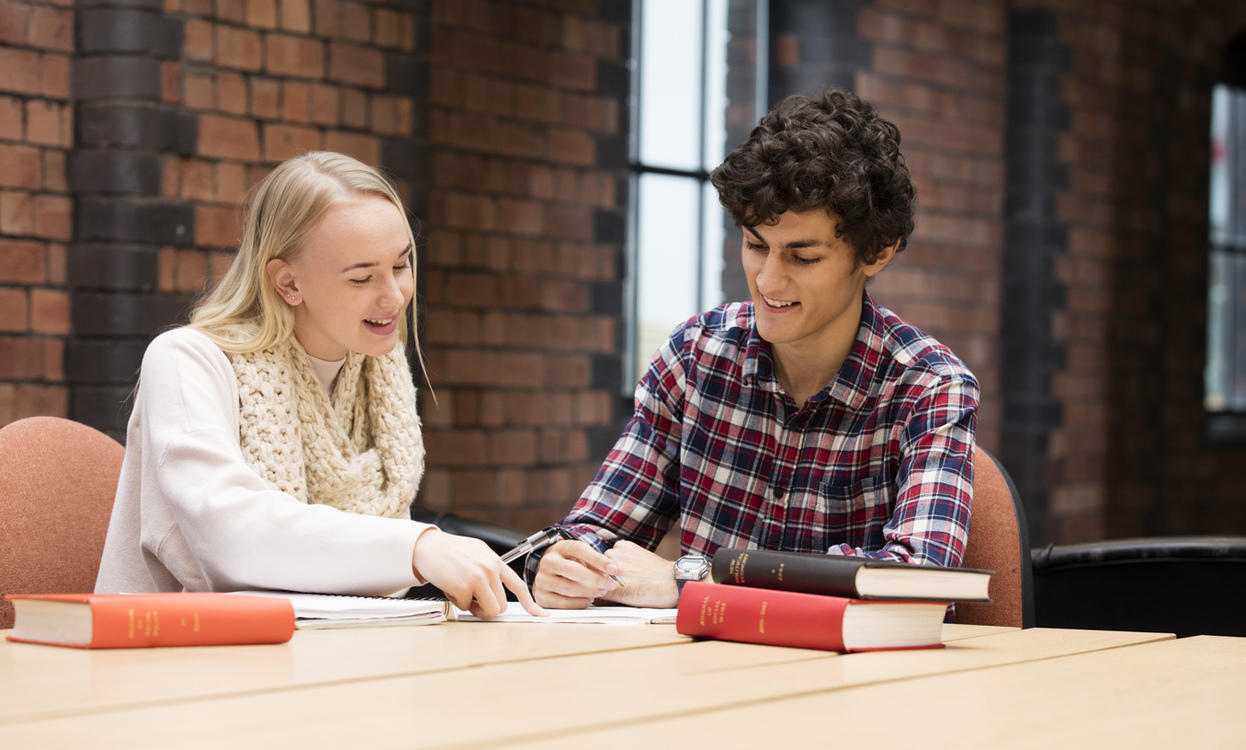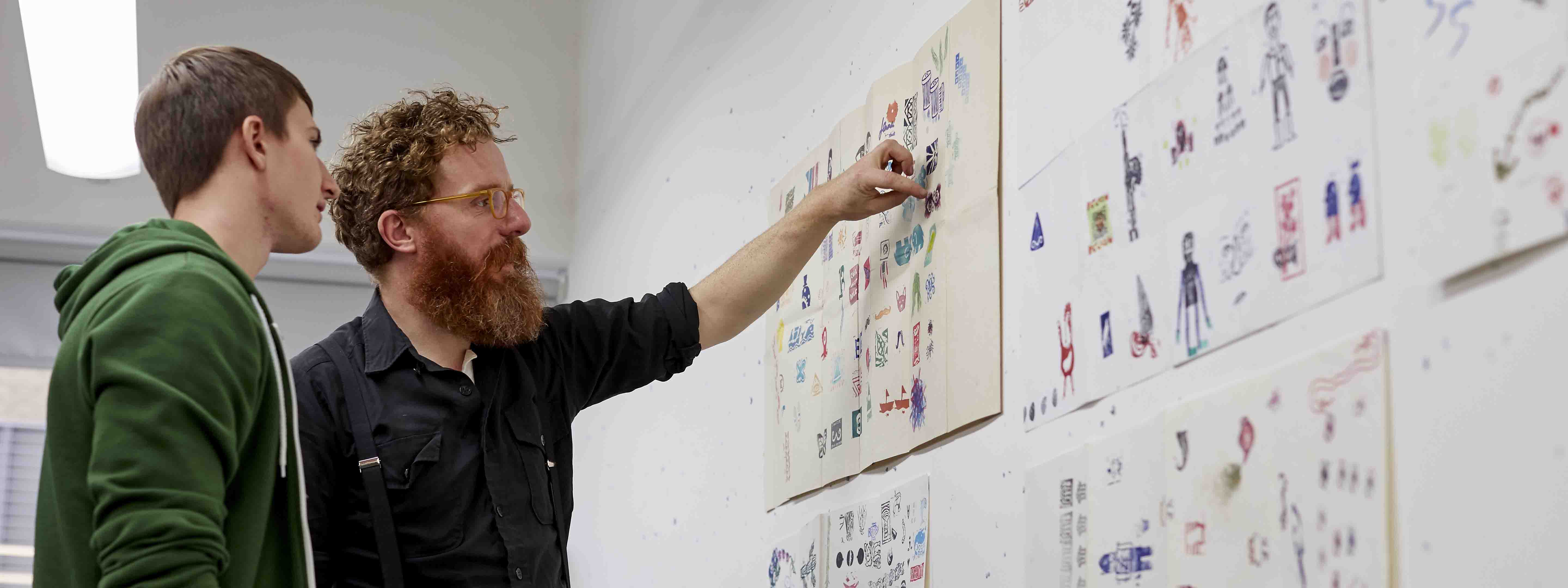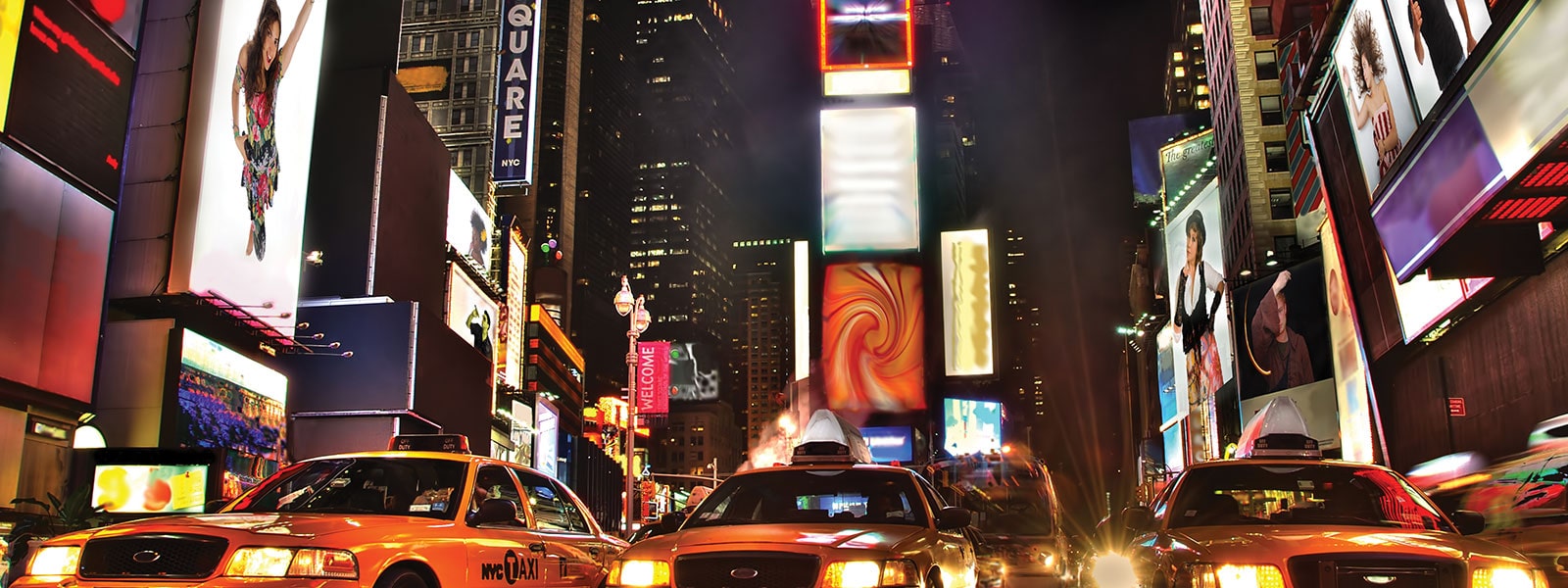Module Overview
Fragmentation, uncertainty and conflict characterise a world in aftermath of war, at end of empire, and at the beginning of a period of radical social and cultural change. This module aims to chart the emergence of the contemporary world from these fractured beginnings through an introduction to British literature of the period 1950–2000. From the post-war Windrush migration to the rise of the historical novel at the turn of the millennium, the Angry Young Men to new feminist perspectives and postcolonialism, this module explores relevant theoretical perspectives on the late 20th Century and encourages an appreciation of the relationship between texts and their social, political and cultural contexts.
Module Overview
In this module students are given the conceptual terms required for an understanding of how narrative works, and how narrative constructs our idea of ourselves and our social relationships as well as informs our ability to create stories.
In lectures and workshops, students will be studying the analysis, practice and enjoyment of narrative and will be asked to consider a wide range of texts across a range of forms and genres, literary and popular, visual as well as verbal, as examples of story telling.
Module Overview
This module considers the range of theories that we can use when we read and think about literature. Students will have the opportunity to study psychoanalysis, feminism, Marxism and postmodernism, among others, to think about why and how we structure meaning and interpretation in certain ways. We consider questions such as ‘what is an author?’, ‘what is gender?’ and ‘why do certain things frighten us?’ through theorists such as Roland Barthes, Judith Butler and Sigmund Freud.
Module Overview
This module explores apocalyptic and post-apocalyptic texts using a range of novels, short stories, poems and films. Lectures will establish cultural and historical contexts and address issues such as form and genre. The module will explore a range of significant periods from early Judeo-Christian fears regarding the purging moral apocalypse, through Romantic preoccupations with nature and industrialisation, postmodernism and more contemporary concerns about viral or cybernetic apocalypse. We will draw from a range of disciplines including literary theory, psychoanalysis, cultural theory, philosophy and trauma theory.
Module Overview
This module explores the nineteenth-century literature of the USA, chiefly focusing on fiction and poetry. Authors covered include Herman Melville, Emily Dickinson, Charlotte Perkins Gilman, Walt Whitman and Willa Cather, among others.
Module Overview
This module covers a broad range of twentieth-century American fiction and poetry. Beginning with Fitzgerald, other authors studied include Ernest Hemingway, Jack Kerouac, Toni Morrison, Thomas Pynchon and David Foster Wallace.
Module Overview
This module examines key British medieval texts, primarily in Middle English, from the High and Late Middle Ages (that is, from approximately the twelfth century to fifteenth century). It explores the breadth of literary activity in the period through a variety of genres--such as debate poetry, ethnographies, beast fables, romance, dream visions, satire, devotional and mystical writings, and mystery plays--and the evolution of a new form of English (the precursor of modern English), revealing that the medieval period is, in truth, a far cry from the misnomer by which it is often identified, the ‘dark ages’.
Module Overview
This module examines one of the most varied literary genres extant, one that, at times, is often relegated to the margins because of its slippery nature. Students will examine early examples of fantasy and trace the genre’s development across a number of key historical epochs, from the classical and medieval periods to the twenty-first century. They will consider especially Tolkien as a pivotal force in the growth of fantasy literature and theory, as well as The Inklings, a group whose works had a profound influence on the evolution of the genre in the twentieth century. A range of subgenres of the fantastic will be explored, which may include high and low fantasy, ironic fantasy, historical fantasy, or magic realism, and, alongside primary texts, they will read selections from modern theoretical and critical texts that articulate different interpretations and approaches to the fantastic.
Module Overview
This module, conceptually, textually, formally, and intellectually challenging, is designed to introduce students to a range of innovative literatures, in a variety of forms, in order both to interrogate the idea of experimental writing, and its own often aggressive interrogation of the expressive potential of literature.
Module Overview
The Industry Placement Year is an exciting opportunity for students to take a year out of formal study to gain real-world experience in the creative industries. Whether you’re looking to build industry connections, develop professional skills, or explore career options, this year will give you a full-time, hands-on experience within an arts, cultural, or creative organisation.
This year is a collaborative experience between you, your employer, and the University—ensuring that you get the most out of your time in a professional setting.
Module Overview
This module examines some of the preoccupations of the fin de siècle through a series of texts and authors who helped to shape the cultural climate of the 1880s-1900s. These decades gave rise to a pervasive feeling of vital urgency and exhilaration in Britain, as well as a conflicted sense that society was teetering on a cliff edge of irredeemable degeneration. Texts will be read alongside and in light of social and political developments, such as anxieties about Britain’s empire and position on the global stage, evolution and degeneration, sexual identity, women’s rights, the rise of occultism and spiritualism, Decadence, and radical politics. The study of fin de siècle writing will be set against the backdrop of the infamous Oscar Wilde trial, and the sensationalised Jack the Ripper murders, contemporary anxieties about criminality, the empire, and eugenics.
Module Overview
In this module students will have the opportunity to explore the early twentieth century, one of the most creative periods in English literature, when writers like James Joyce, T.S. Eliot, Virginia Woolf and D.H. Lawrence were challenging conventional ways of writing and reading, and rewriting how we experience and understand the world and ourselves. Required reading will include some of the most powerful works from the modern movement between 1910 and 1940 including James Joyce’s Ulysses and T.S. Eliot’s The Waste Land.
Module Overview
This module examines literary representations of the world that emerge from the history of European exploration and expansion, and considers literary responses from groups that were marginalized through imperialism. Students will be encouraged to look at the treatment by white writers of issues of race and empire in the early twentieth century. They will also have the opportunity to explore ways in which postcolonial literatures develop strategies of 'writing back' to the imperial centre and re-thinking identity in terms of race, gender and nation. The final section offers a study of postcolonial Britain and some global implications of postcolonial writing.
Module Overview
This module enables you to explore how works examine, contest, and imagine multiple forms of living ‘otherwise’ in a globally interconnected, but unequal, world through reading a variety of 20th and 21st Century Anglophone Literature. You can engage in lively, interlinked thematic debates, that might include Indigeneity and settler colonialism; nationhood and anticolonial resistance; diaspora; globalization and neocolonialism; world literatures and the neoliberal world-system; cosmopolitanism; the trans-Indigenous; environment and climate; and speculative futures. Primary works could include African, Caribbean, Indigenous, Irish, South Asian, MENA, Pacific Rim, and diasporic literary and cinematographic texts such as film and television.
Module Overview
Students studying Renaissance Literature have the opportunity to look in detail at a range of texts from the late Elizabethan period to the mid-1630s, including work by Shakespeare, John Donne, Ben Jonson and Mary Wroth. They also have the chance to explore the historical and cultural contexts in which these texts were produced, and the effects that they had on the politics and culture of the British Isles in the period. Lectures aim to examine post-Reformation England and late humanism, patronage, gender relations, early modern literary theory, education and philosophy.
Module Overview
Students taking Restoration Literature, the companion module to Renaissance Literature, can study in detail a range of texts written between the era of the English Civil War and the first decade of the eighteenth Century, including work by John Milton; Andrew Marvell; Aphra Behn; and John Wilmot, the 2nd Earl of Rochester. Students have the opportunity to also study the historical and cultural contexts in which these texts were produced. Lectures aim to examine the origins and effects of the civil war, the ethics of rebellion and reform, the Restoration theatre, religious controversies, gender relations, developing philosophical thought and Restoration manners.
Module Overview
Students will study English literature of the Romantic period (1780-1830), including poetry, fiction, autobiography, and political polemic. The module will address revolutions in politics and literary form and ideas of nature, the sublime, sensibility and feeling, abolition and slavery, Enlightenment feminism, the Gothic, Orientalism, and childhood. Students will have the opportunity to study works by writers including William Wordsworth, William Blake, Mary Shelley, Jane Austen, and Olaudah Equiano, placing them in their cultural context.
Module Overview
This module provides an opportunity for English and Creative Writing students to spend a term at second level studying at one of the University’s partner institutions. During the term abroad students undertake a course load at the partner institution of equivalent standard to that of one term of the programme at Lincoln. Participation in study abroad also offers opportunities for personal student development in the wider sense, taking in cultural, sporting, and social opportunities.
In order to participate, students are usually expected to obtain a 2:1 or higher at Level 1, have a good record of attendance and participation, and must complete an application process. A limited number of places will be available each year, and participation is at the discretion of the Module Co-ordinator and the Programme Leader.
Module Overview
This module examines Arthurian narratives, myths, and traditions within a variety of contexts and media, and traces a variety of themes associated with Arthur and his court, including history and national identity; violence; kingship and rule; loyalty and betrayal; and love, sex, and gender roles.
Students will be expected to assess the importance of a myth that spans more than a millennium and address how medieval texts made meaning within their specific socio-cultural situations, as well as how later periods make meaning through their deployment of the medieval in new contexts.
Module Overview
While students are introduced to prose fiction writing and essential narrative techniques at level 1, the field of prose writing is much wider than short stories or novels. In areas such as travel, historiography, literary journalism and biography, writers frequently employ similar techniques to those used by novelists to make events and characters more vivid.
This module will encourage students to use their creative and technical skills to write non-fiction, including but not limited travel writing, life writing, articles, reviews and journals. Particular attention will be paid to balancing the need to convey factual information with the creative potential of narrative, language and form.
This module will allow students to research a field they wish to investigate such as current events, the arts, history or some aspect of science. Students will learn both how to conduct research (through archival research, observations, and interviews) as well as the fundamental techniques of telling a true story. Extended over two semesters, it will enable students to engage more deeply with a chosen field of non-fiction, for example to produce chapters that would contribute to a book as well as features.
Module Overview
This module will explore the role of fiction writing with an initial emphasis on the short story. Many writers begin with the short story. Through writing short stories they are able to experiment, learn the fundamentals of narrative composition, and have the satisfaction of completing something to a high standard in a relatively short period of time.
This module will introduce students to the work of a range of fiction writers, whilst helping them to develop their skills in crafting prose. They will be asked to study particular stories each week, but also expected to pursue their own interests in reading. The skills required for writing short stories are also key to working in other forms, so this module will help students to develop as writers, whatever their plans and ambitions may be.
Module Overview
The poetry workshop operates as a series of sessions in which students experiment with a variety of poetic forms with the aim of compiling a collection of their own verse.
Students will engage with a number of different poets each week as a stimulus to their own poetic engagement, and will compose and perform their own work as part of a practice of critique.
Module Overview
This module develops students' knowledge of the craft of scriptwriting for a wide range of formats, including but not limited to audio drama, graphic novel and moving image (short film). Students will study, watch and listen to a number of texts appropriate to the format they wish to practice and develop their understanding of the relationship between character, script and production. Attention will be given to the nuts and bolts of scriptwriting - dialogue, pace, setting, and story. These are key to all forms of creative writing and literary analysis, as well as to creating successful script-based texts.
Module Overview
The aim of this module is to give students an insight into careers in the writing industries. It aims to prepare and support them in the process of applying for employment, residencies, grants, internships and other work in the creative industries and also help to prepare them for the realities of life as a contemporary writer.









